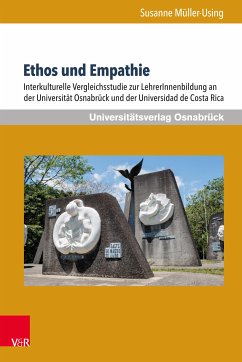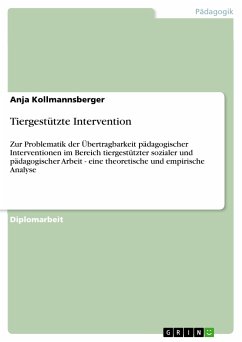Kinder zu verstehen, setzt Empathie voraus und die Fähigkeit, die Befindlichkeit und die Stimmung in der Gruppe aufzugreifen, aber auch individuelle Bedürfnisse zu sehen und im pädagogischen Agieren zu berücksichtigen. Dies bedarf einer gut ausgebildeten Beobachtungsfähigkeit, aktiven Zuhörens und auch Erfahrung im Umgang mit Kindern. An welchen Stellen sind Aspekte pädagogischer Ethik und Empathie im erziehungswissenschaftlichen Diskurs beheimatet? In welchem Verhältnis stehen sie zueinander und welche Bedeutung haben sie für den Umgang mit Kindern und Jugendlichen in schulpädagogischen Situationen? Diese Fragen werden theoretisch und im Rahmen einer interkulturellen Vergleichsstudie mit Costa Rica praktisch untersucht. Den Abschluss bilden exemplarisch die Analyse zweier Konzepte der LehrerInnenbildung und eine empirische Untersuchung mit Lehramtsstudierenden beider Universitäten.
Understanding children requires empathy and the ability to use the sensibility and atmosphere in a group but also to sense individual needs and to consider these in educational acts. This requires well-trained observational skills, active listening skills and experience in the work with children. Where are aspects of educational ethics and empathy in an educational-scientific discourse situated? How are these related to each other and what kind of significance do they have during the work with children and adolescents in educational situations in school? These issues will be addressed theoretically and practically with the help of an intercultural survey with Costa Rica. Finally, an analysis of two examples of concepts for teacher training and an empiric analysis with students from both universities are being presented.
Understanding children requires empathy and the ability to use the sensibility and atmosphere in a group but also to sense individual needs and to consider these in educational acts. This requires well-trained observational skills, active listening skills and experience in the work with children. Where are aspects of educational ethics and empathy in an educational-scientific discourse situated? How are these related to each other and what kind of significance do they have during the work with children and adolescents in educational situations in school? These issues will be addressed theoretically and practically with the help of an intercultural survey with Costa Rica. Finally, an analysis of two examples of concepts for teacher training and an empiric analysis with students from both universities are being presented.
Dieser Download kann aus rechtlichen Gründen nur mit Rechnungsadresse in A, B, BG, CY, CZ, D, DK, EW, E, FIN, F, GR, H, IRL, I, LT, L, LR, M, NL, PL, P, R, S, SLO, SK ausgeliefert werden.









